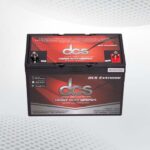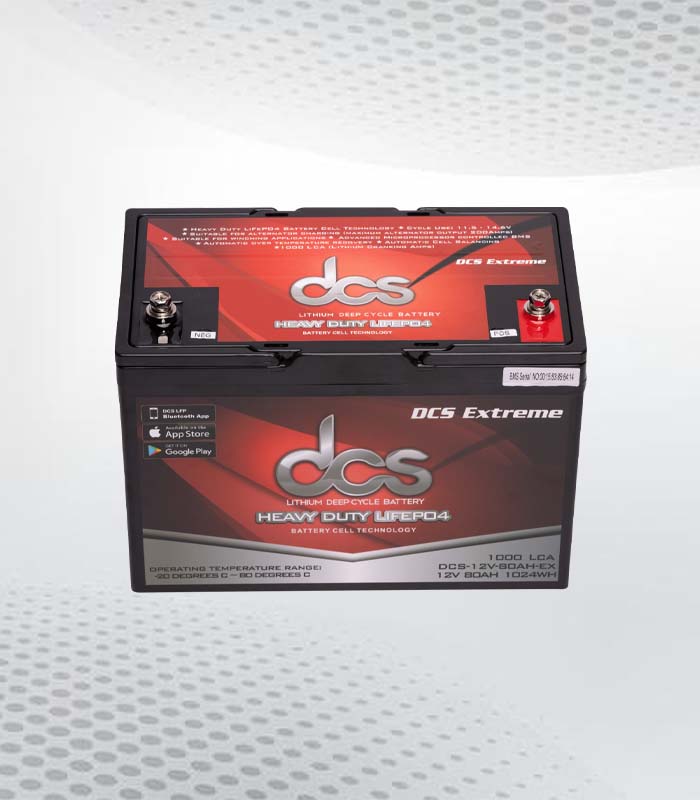
Harnessing the power of the sun has become increasingly popular in recent years. With advances in Power Solar Battery technology, homeowners and businesses alike can now take advantage of renewable energy sources. That blog post will dive into the world of power solar batteries, exploring the different types available, their benefits, and how to choose the best one for your needs. They’ll also discuss the future of solar batteries and their potential to revolutionize the way we use energy.
Understanding The Basics Of Solar Power
Solar power is a renewable energy source that has gained immense popularity in recent years. However, before diving into the world of power solar batteries, it’s essential to understand the basics of solar power. At its core, solar power harnesses the energy from the sun and converts it into electricity. That is done through the use of solar panels, which contain photovoltaic cells that absorb sunlight and generate an electric current.
The electricity produced can be used to power homes, and businesses, or even stored in batteries for later use. One key aspect of solar power is its dependence on sunlight. The amount of energy produced by solar panels is directly influenced by the intensity and duration of sunlight. Therefore, the location and orientation of solar panels play a crucial role in maximizing their efficiency.
Solar power offers numerous benefits, such as reducing reliance on fossil fuels, minimizing carbon emissions, and providing energy independence. Additionally, solar power systems require minimal maintenance and have a long lifespan, making them a cost-effective investment in the long run.
How To Select The Best Battery For Solar Power
Choosing the right battery for your solar power system is crucial to ensuring maximum efficiency and long-term performance. Here are some key factors to consider when selecting the Best Battery For Solar Power:
Capacity: Assess your energy needs and determine the battery capacity required to meet your electricity consumption. Consider factors such as peak energy usage, backup requirements, and the size of your solar panel system.
Battery Chemistry: Different battery chemistries have varying characteristics and performance. Lead-acid batteries are cost-effective but require regular maintenance. Lithium-ion batteries offer higher efficiency and longer lifespan but come at a higher cost.
Depth of Discharge: The depth of discharge (DoD) refers to the amount of battery capacity you can safely use without damaging the battery. Choose a battery with a high DoD to maximize usable capacity and avoid premature degradation.
Lifespan: Evaluate the battery’s expected lifespan and warranty. Longer lifespans will reduce replacement costs and ensure reliable performance over the long term.
Safety: Look for batteries with built-in safety features such as overcharge and over-discharge protection to prevent damage to the battery and your solar power system.
Factors To Consider Before Choosing Best Batteries For Solar Power Storage
When it comes to choosing the Best Batteries For Solar Power Storage, there are several factors that need to be considered. First and foremost, you need to assess your energy needs and determine the battery capacity required to meet your electricity consumption. Consider factors such as peak energy usage, backup requirements, and the size of your solar panel system.
Another important factor to consider is the battery chemistry. Different battery chemistries have varying characteristics and performance. Lead-acid batteries, for example, are cost-effective but require regular maintenance. On the other hand, lithium-ion batteries offer higher efficiency and longer lifespan, but they come at a higher cost. The depth of discharge (DoD) is another crucial consideration. That refers to the amount of battery capacity you can safely use without damaging the battery.
Choosing a battery with a high DoD allows you to maximize usable capacity and avoid premature degradation. Lifespan and warranty should also be taken into account. Evaluate the battery’s expected lifespan and the warranty provided. Longer lifespans will reduce replacement costs and ensure reliable performance over the long term. Safety is of utmost importance when it comes to solar batteries.
Comparing Efficiency And Capacity Of Solar Powered Battery Pack
When comparing efficiency and capacity of Solar Powered Battery Pack, there are a few key factors to consider. Efficiency refers to how well the battery can convert and store energy from the sun, while capacity refers to the amount of energy the battery can hold.
Efficiency is an important consideration because it determines how much energy you can actually use from your solar panels. A higher efficiency battery will be able to convert more sunlight into usable electricity, resulting in greater energy savings. Additionally, a more efficient battery will also charge faster, allowing you to take full advantage of the sun’s energy.
Capacity, on the other hand, determines how much energy can be stored for use when the sun isn’t shining. It is important to choose a battery with sufficient capacity to meet your energy needs during periods of low sunlight or high electricity usage. Consider factors such as your household’s average energy consumption and the size of your solar panel system when evaluating capacity.
When comparing efficiency and capacity, it’s important to strike a balance between the two. While a high-capacity battery may seem attractive, if it has low efficiency, you may end up wasting energy. Conversely, a highly efficient battery with low capacity may not meet your energy storage needs.
Maximizing Your Solar Power Pack: Integration And Compatibility
Maximizing the potential of your Solar Power Pack requires careful integration and compatibility with your existing solar energy system. When selecting a solar battery, it is important to ensure that it seamlessly integrates with your solar panels, inverter, and other components. Compatibility issues can lead to inefficiencies and may limit the overall performance of your system. Start by considering the type of solar inverter you have.
Different inverters, such as string inverters, micro-inverters, or power optimizers, have specific compatibility requirements. Make sure the battery you choose is compatible with your chosen inverter technology to ensure seamless communication and optimal performance. Consider the capacity and power rating of the battery. The capacity should match your energy storage needs, while the power rating should be sufficient to handle the load requirements of your home or business.
Maintenance And Safety Tips For Solar Batteries
As with any technology, proper maintenance and safety measures are crucial to ensure the longevity and optimal performance of your solar batteries. Here are some maintenance and safety tips to keep in mind:
Regular Inspection: Periodically inspect your solar battery system to check for any signs of damage, such as leaks or corrosion. Address any issues promptly to prevent further damage or potential safety hazards.
Cleanliness: Keep the solar panels and battery terminals clean from dust, dirt, and debris. Regularly wipe them down with a soft cloth and ensure that there is no shading or obstruction that could affect their efficiency.
Battery Monitoring: Monitor the performance of your solar battery system regularly. Some batteries come with monitoring software that allows you to track the state of charge, voltage levels, and other important metrics. Use that information to identify any potential issues and take appropriate action.
Temperature Control: Solar batteries are sensitive to extreme temperatures. Make sure your battery system is installed in a location with proper ventilation to prevent overheating. Avoid exposing the batteries to freezing temperatures as well, as that can cause damage to the cells.
Making Your Solar Battery Last: Longevity And Durability
To ensure the longevity and durability of your solar battery, there are several key considerations to keep in mind. Firstly, proper maintenance is essential. Regularly inspect your solar battery system for any signs of damage or wear and tear, such as leaks or corrosion. Address any issues promptly to prevent further damage or potential safety hazards.
In addition to maintenance, temperature control is crucial. Solar batteries are sensitive to extreme temperatures, so it’s important to install your battery system in a location with proper ventilation to prevent overheating. Avoid exposing the batteries to freezing temperatures as well, as that can cause damage to the cells.
Getting The Most Out Of Your Solar Battery Investment
Now that you’ve invested in a solar battery, it’s time to make sure you’re getting the most out of your investment. Here are some tips to help you maximize the benefits of your solar battery:
Optimize your energy usage: Monitor your energy consumption and adjust your usage habits to take full advantage of your solar battery. Time your energy-intensive activities, such as running the dishwasher or doing laundry, to coincide with peak solar production.
Explore energy management systems: Consider installing an energy management system that allows you to monitor and control your energy usage in real-time. These systems can help you identify areas where you can further reduce your energy consumption and increase your reliance on solar power.
Utilize smart appliances: Upgrade to smart appliances that can communicate with your solar battery system. These appliances can automatically adjust their energy usage based on the availability of solar power, maximizing your energy savings.
Participate in demand response programs: Some utility companies offer demand response programs where you can earn incentives for reducing your energy usage during peak demand periods. By participating in these programs, you can further offset your energy costs and reduce strain on the electrical grid.
Consider time-of-use electricity rates: If your utility offers time-of-use electricity rates, take advantage of them. These rates offer lower electricity prices during off-peak hours, allowing you to charge your solar battery when electricity is cheaper and use it during more expensive peak hours.
 FAQs
FAQs
1. How much do solar batteries cost?
The cost of solar batteries can vary depending on factors such as capacity, brand, and technology. On average, you can expect to pay anywhere from $5,000 to $15,000 for a residential solar battery system. It’s important to consider the long-term savings and benefits of investing in a solar battery, such as reduced energy costs and increased energy independence.
2. How long do solar batteries last?
The lifespan of solar batteries can vary depending on factors such as usage, maintenance, and battery chemistry. On average, most solar batteries have a lifespan of 10 to 15 years. However, lithium-ion batteries tend to have a longer lifespan of 15 to 20 years. It’s important to check the warranty provided by the manufacturer, as that can give you an indication of the expected lifespan of the battery.
3. Can solar batteries power my entire home?
The capacity of your solar battery system will determine how much of your home’s energy needs can be met. While solar batteries can store energy, their capacity may not be sufficient to power your entire home during periods of high energy usage or low sunlight. It’s important to assess your energy needs and choose a battery system that matches your consumption patterns.
4. Do solar batteries require maintenance?
Solar batteries generally require minimal maintenance. However, it’s important to regularly inspect your battery system for any signs of damage or wear and tear. Keep the battery terminals clean from dust and debris and ensure proper ventilation to prevent overheating. Following the manufacturer’s instructions and safety guidelines will help ensure the optimal performance and longevity of your solar battery system.
Conclusion
As company have explored the world of power solar batteries, it’s clear that they have the potential to revolutionize the way we use energy. With advances in solar battery technology, homeowners and businesses can now harness the power of the sun and take advantage of renewable energy sources. By understanding the basics of solar power and selecting the best battery for your needs, you can ensure maximum efficiency and long-term performance.
The post Harnessing The Power Of The Sun: Diving Into Power Solar Battery Technology appeared first on Blogs Unplugged.
from Blogs Unplugged https://ift.tt/Ovg4PGl
via IFTTT

0 Comments